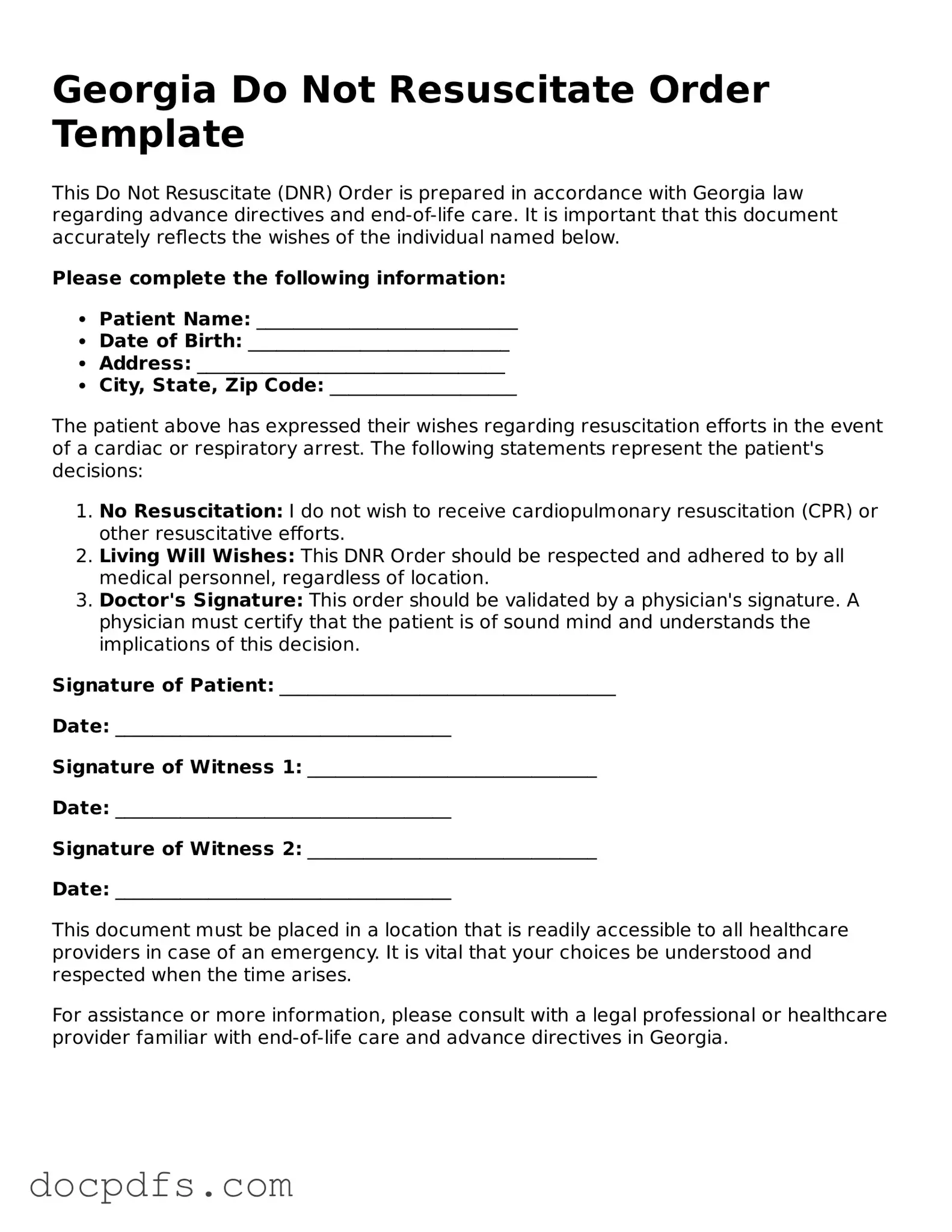What is a Do Not Resuscitate (DNR) Order in Georgia?
A Do Not Resuscitate Order (DNR) is a legal document that allows individuals to refuse cardiopulmonary resuscitation (CPR) and other life-saving measures in the event of a medical emergency. In Georgia, this order is typically used by patients who have a terminal illness or are in a state where resuscitation would not improve their quality of life.
Who can request a DNR Order in Georgia?
In Georgia, a DNR Order can be requested by a patient who is at least 18 years old and has the capacity to make their own healthcare decisions. If the patient is unable to make decisions, a legally authorized representative, such as a family member or a designated healthcare proxy, can request the order on their behalf.
The DNR Order form can be obtained from several sources, including:
-
Your healthcare provider or physician.
-
Hospitals and healthcare facilities.
-
The Georgia Department of Public Health website.
It is essential to ensure that the form is properly filled out and signed by both the patient and their physician to be valid.
The DNR Order form must include the following information:
-
The patient's name and date of birth.
-
The signature of the patient or their authorized representative.
-
The signature of the physician who agrees to the order.
-
The date the order was signed.
This information ensures that the order is clearly associated with the correct individual and is legally binding.
It is crucial to keep the DNR Order form in a place that is easily accessible to emergency medical personnel. Consider the following options:
-
Attach it to your refrigerator, as first responders often check there.
-
Keep a copy in your medical records at your healthcare provider's office.
-
Provide copies to family members or caregivers who may be present in an emergency.
Can I change or revoke my DNR Order?
Yes, a DNR Order can be changed or revoked at any time. If you decide to revoke the order, you should inform your healthcare provider and ensure that all copies of the original order are destroyed. It is also advisable to create a new order if you wish to change your preferences regarding resuscitation.
What should I discuss with my healthcare provider regarding a DNR Order?
Before completing a DNR Order, it is important to have an open conversation with your healthcare provider. Discuss the following:
-
Your medical condition and prognosis.
-
The potential outcomes of resuscitation attempts.
-
Your personal values and preferences regarding end-of-life care.
This dialogue will help ensure that your wishes are understood and respected.
Will a DNR Order affect my other medical treatments?
A DNR Order specifically addresses resuscitation efforts and does not impact other medical treatments. Patients with a DNR Order are still entitled to receive comprehensive medical care, including pain management and comfort measures. It is essential to clarify your wishes with your healthcare provider to ensure all aspects of your care align with your preferences.
What happens if I am in a hospital with a DNR Order?
If you are admitted to a hospital with a valid DNR Order, the medical staff will respect your wishes as outlined in the document. They will continue to provide necessary medical care while ensuring that resuscitation efforts are not initiated. It is advisable to inform the hospital staff of your DNR status upon admission to avoid any confusion during emergencies.

